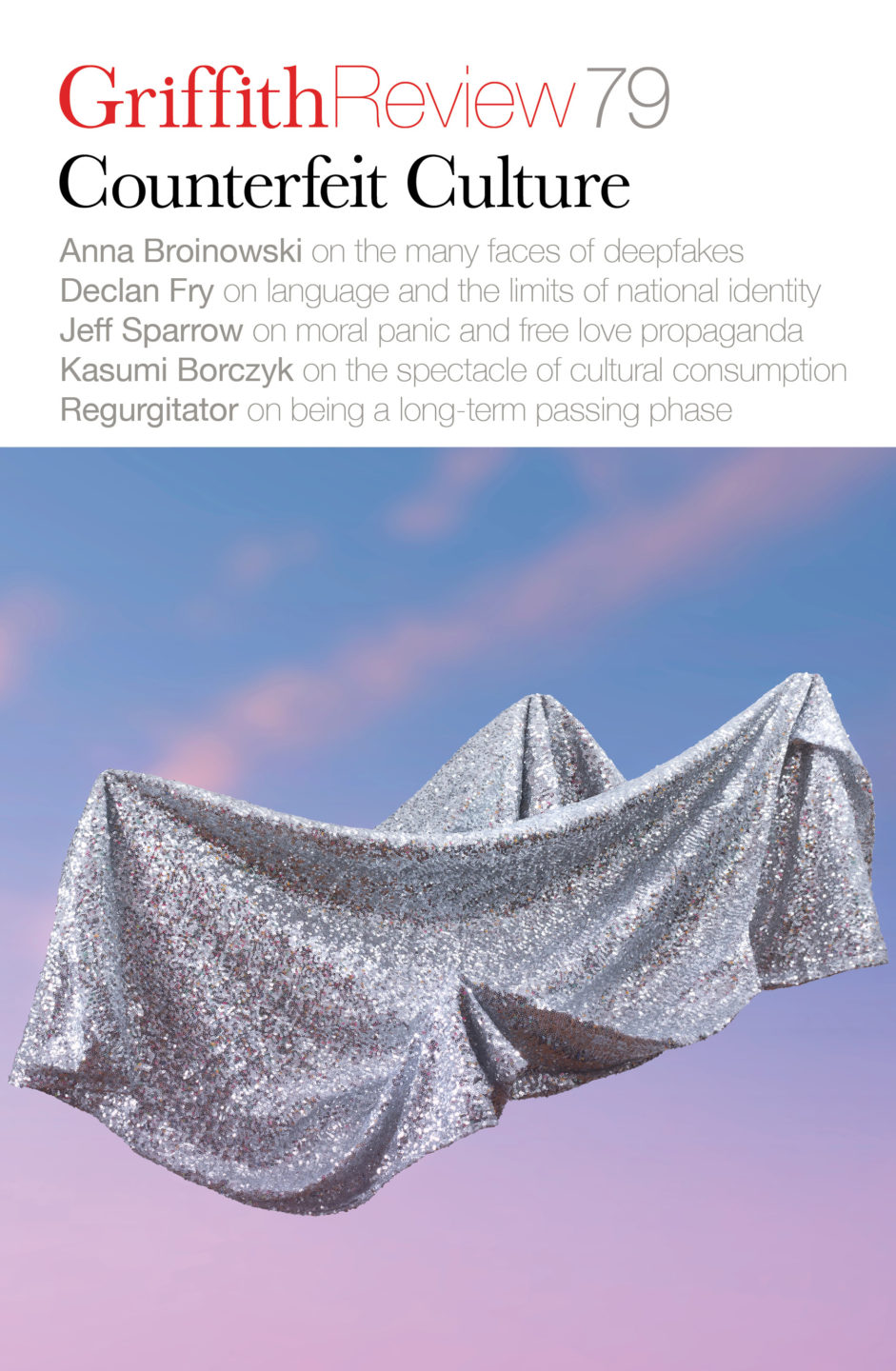Featured in

- Published 20230207
- ISBN: 978-1-922212-80-1
- Extent: 264pp
- Paperback (234 x 153mm), eBook


Already a subscriber? Sign in here
If you are an educator or student wishing to access content for study purposes please contact us at griffithreview@griffith.edu.au
Share article
More from author

A perfectly ordinary dachshund observes the problem of being
Poetry Breathing your small inauspicious body almost into incomprehension, supine and crouched, lost to the world, or to that portion only dachshund speech describes, your propulsive unyielding deeds...
More from this edition

Same old new village
FictionWe pass the food market, and the dining hall, where each morning I would take my grandmother to eat yong tofu, hot noodle soup with fishballs and stuffed tofu. She said she always wanted to eat, but in reality she wanted to show me off to her old friends.

The Wrestling of Art
PoetryWe’re tired of the caged horizon, the canned emotion. But the spectacle of the crimson world is a real slobber-knocker of a struggle.

Vaudeville
PoetryIf the magical colours aren’t even across the page, it’s a failure of art according to aesthetes. An obscenity of blues and reds, they say.